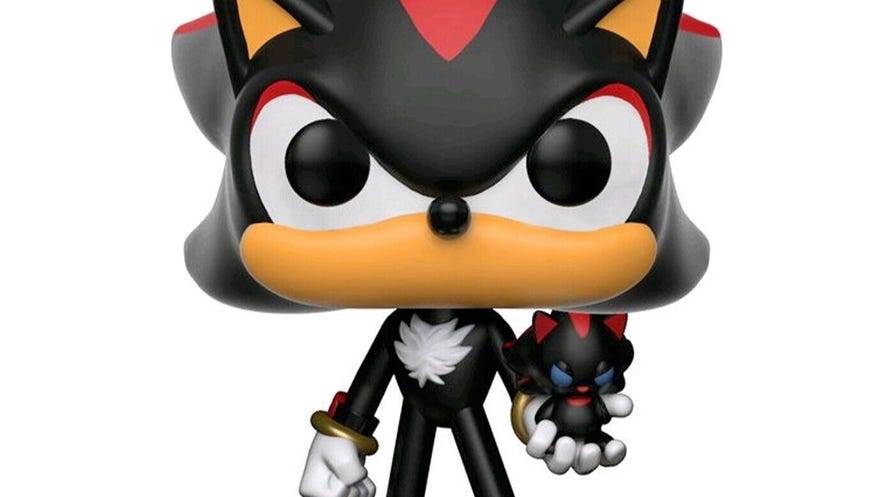Dread toy-peddler Funko Pop gets cool, handsome Itch.io taken offline via dodgy "AI-powered" brand protection
It's back online now
Among my last-resort tactics for generating precious PC gaming news is to go on holiday - for as sure as toast lands buttered side down while cats always land on their feet, as sure as the number 13 breeds calamity and Star Citizen committing to a release date guarantees a delay, myself going on holiday will always, somehow, conjure a big story from the crevices. It's basic physics. In this case, I was on holiday from Friday through Monday, and this fact and this fact alone appears to have coaxed some toy manufacturer into taking the internet's most cherished indie gaming platform offline by means of a "bogus" phishing report, sent by "AI-powered" brand protection software.
The situation has now been resolved, thankfully, and you can access Itch.io as normal, but I will never pass up the opportunity to cast shade on Funko Pop, whose NFT-garlanded bobbleheads I hate as I do veruccas and forest fires. So here's a quick recap if you, too, missed the drama.
The trouble started on Sunday, when Itch.io mysteriously went offline. According to a post from Itch.io's owner Leaf Corcoran on Bluesky (Twitter's relatively unspoilt cousin), the culprit was a phishing (i.e. internet scam) report automatically sent on Funko Pop's behalf to Itch.io's domain registrar, who proceeded to cork this wellspring of arty smallscale game development without due process.
"I kid you not, itch.io has been taken down by Funko of 'Funko Pop' because they use some trash 'AI Powered' Brand Protection Software called Brand Shield that created some bogus Phishing report to our registrar, iwantmyname, who ignored our response and just disabled the domain," reads the post. "I hope you're all having a nice Sunday evening."
Using my advanced journalist brain, I deduce from this communique that Corcoran was not having a nice Sunday evening, and would strongly prefer that Itch.io stayed online. He had more to say over on Hacker News, commenting that the provocation for the BrandShield report was probably a Funko Pop fan project created by an Itch.io user.
"From what I can tell, some person made a fan page for an existing Funko Pop video game (Funko Fusion), with links to the official site and screenshots of the game," the message reads. "The BrandShield software is probably instructed to eradicate all "unauthorized" use of their trademark, so they sent reports independently to our host and registrar claiming there was "fraud and phishing" going on, likely to cause escalation instead of doing the expected DMCA/cease-and-desist. Because of this, I honestly think they're the malicious actor in all of this.
"About 5 or 6 days ago, I received these reports on our host (Linode) and from our registrar (iwantmyname)," the post continues. "I expressed my disappointment in my responses to both of them but told them I had removed the page and disabled the account. Linode confirmed and closed the case. iwantmyname never responded. This evening, I got a downtime alert, and while debugging, I noticed that the domain status had been set to "serverHold" on iwantmyname's domain panel. We have no other abuse reports from iwantmyname other than this one. I'm assuming no one on their end "closed" the ticket, so it went into an automatic system to disable the domain after some number of days."
Funko Pop leapt into action following these complaints. They've seemingly clarified the situation with iwantmyname, hence Itch.io's return to the web. They also agree with Corcoran's assignation of blame to BrandShield, though they're more diplomatic about it.
"Recently, one of our brand protection partners identified a page on http://itch.io imitating the Funko Fusion development website," reads a Xitter post from last night. "A takedown request was issued to address this specific page. Funko did not request a takedown of the @itchio platform, and we're happy the site was back up by this morning. We have reached out to @itchio to engage with them on this issue and we deeply appreciate the understanding of the gaming community as the details are determined."
The real shocker here, of course, is that Funko Pop has fans. Who are you people, and why do you covet shrunken petroleum-derivative incarnations of popular entertainment characters with eyes as blank and pitiless as the Mariana Trench?
Don't those hideously swollen heads balanced atop wasp-thin necks make you wince? Why would you permit such creatures near your children? And have you thought of the plastic waste? Funko Pop recently consigned $30 million's worth of these malevolent garden gnomes to landfill. Picture it: somewhere in the world, thousands of unblinking chibi abominations lie in shallow graves, hidden from the light only by a perilously sparse layer of miscellaneous rubbish. Spill a vampire's blood or some nuclear isotopes in the wrong place, and who knows what might emerge. We should deploy warning pictograms and apocalyptic sculpture near the burial site, to keep our ignorant descendants at bay.
More immediately and practically, we could ask why it's so easy for some digital watchdog to auto-nuke a whole independent gaming community over a fan project, especially given that fan projects abound on Itch.io. Hopefully it's a one-off. Imagine if Sega had similar protections in place for Sonic.

